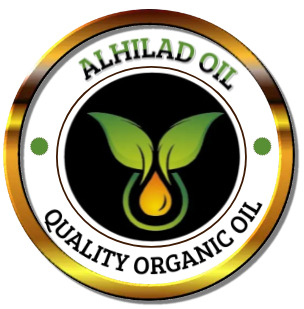Mustard seed oil, derived from the seeds of the mustard plant (Brassica spp.), has been widely used for culinary, medicinal, and cosmetic purposes for centuries. This versatile oil holds significant importance to humans due to its unique composition and various beneficial properties.
Let’s delve into the details of why mustard seed oil is considered significant and important to humans.
- Culinary Use:
Mustard seed oil is extensively used in cooking, particularly in Indian, Bangladeshi, and Pakistani cuisines. It adds a distinct flavor and aroma to dishes, enhancing the overall taste. The pungent and sharp flavor of mustard seed oil is valued in traditional recipes, such as pickles, curries, marinades, and spice blends. Its versatility makes it suitable for both vegetarian and non-vegetarian preparations. Mustard seed oil is also used for tempering, adding a unique touch to various lentil and vegetable dishes. - Nutritional Benefits:
Mustard seed oil is rich in essential nutrients that contribute to a healthy diet. It contains monounsaturated fats, polyunsaturated fats, and omega-3 fatty acids, which are beneficial for heart health and may help reduce LDL (bad) cholesterol levels. Additionally, mustard seed oil is a good source of vitamins such as vitamin E, vitamin K, and vitamin B-complex, along with minerals like calcium, iron, and magnesium. Including mustard seed oil in your diet can help meet your nutritional needs and support overall well-being. - Antimicrobial and Preservative Properties:
Mustard seed oil has inherent antimicrobial properties, attributed to compounds like allyl isothiocyanate. These properties make it effective against a wide range of bacteria and fungi. Traditionally, mustard seed oil has been used as a natural preservative to inhibit the growth of microorganisms in pickles and other preserved foods. The antimicrobial nature of mustard seed oil contributes to food safety and helps extend the shelf life of certain preparations. - Potential Health Benefits:
Mustard seed oil contains bioactive compounds that may offer potential health benefits. Research suggests that the phytochemicals in mustard seed oil, including glucosinolates, may possess anticancer properties and help inhibit the growth of cancer cells. However, more studies are needed to fully understand and validate these potential health benefits. - Massage and Aromatherapy:
Mustard seed oil is commonly used in massage and aromatherapy due to its warming and stimulating properties. It is believed to promote circulation, relieve muscle pain and stiffness, and improve skin health. When used in massage, it can help relax the body, reduce inflammation, and provide a soothing experience. - Hair and Skin Care:
Mustard seed oil is also valued for its benefits in hair and skin care. When applied topically, it can help nourish the scalp, strengthen hair follicles, and promote hair growth. Mustard seed oil is often used in hair oils, masks, and conditioners. Additionally, it is used in skincare products for its moisturizing, anti-inflammatory, and antioxidant properties. The oil is believed to help improve skin tone, reduce acne, and alleviate certain skin conditions. - Traditional and Cultural Significance:
Mustard seed oil holds cultural and traditional significance in various regions. It is deeply rooted in culinary traditions and is an integral part of many cultural dishes and festivities. In some cultures, mustard seed oil is also used in religious rituals and ceremonies.
Conclusion:
Mustard seed oil plays a significant role in the culinary, medicinal, and cultural aspects of human life. Its unique flavor, nutritional benefits, antimicrobial properties, potential health benefits, and applications in massage, hair care, and skincare make it a versatile and valuable oil. Whether used in cooking, as a natural remedy, or for cultural practices, mustard seed oil continues to be an important part of human traditions and lifestyle.


